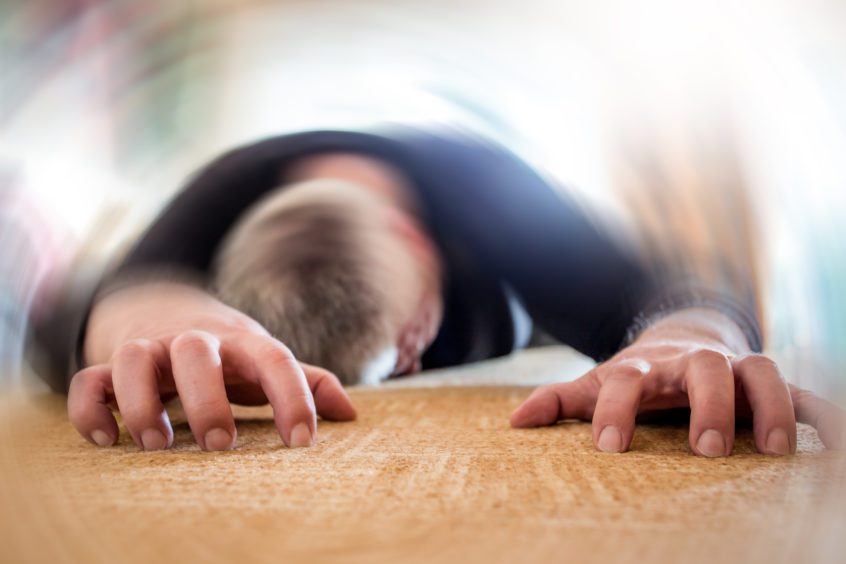According to the Vestibular Disorders Association, one of the leading health concerns for people over the age of 60 is falling, which is often related to balance problems. Each year millions of adults fall and one in five of those falls leads to serious injury, based on information from the Centers for Disease Control. One of three adults 65 or older fall, but only 50% tell their doctor. The percentage of people falling increases from 40% to 65% to 82% with each decade after age 65 years.
The results of a fall can be devastating. Between 12 and 67% of elderly adults who fracture a hip die within one year. Even if a bone isn’t broken as the result of a fall, falls cause pain and injury while reducing future mobility and quality of life.
What Causes the Balance System to Falter?
Lots of factors affect your ability to balance while walking and standing. Good balance requires reliable sensory input from the vision, vestibular system (the balance system of the inner ear), and proprioceptors (sensors of position and movement in the feet and legs). Older adults are more likely to have a variety of diseases that affect these systems, including: cataracts, glaucoma, diabetic retinopathy, and macular degeneration, which affect vision; peripheral neuropathy, which impairs the sensors in the feet and legs; and degeneration of the vestibular system.
Good balance also depends on muscle strength, joint mobility and healthy feet. A sedentary lifestyle, painful arthritis or diseases of bones and muscles can compromise strength, mobility, and the base of foot support.
Balance control also depends on healthy function across many areas of the brain. As we age, brain processing can slow down, which results in slower balance responses. People with cognitive problems also have balance problems, showing the importance of higher level brain processing in balance control.
Because balance is a complex function, there is often no single identifiable cause of falls in an older person. However, older people with chronic dizziness or imbalance are two to three times more likely to fall in comparison with older people who do not experience these problems. Experiencing a previous fall in the last year is the highest risk factor for a future fall.
Common Causes of Dizziness
Benign Paroxysmal Positional Vertigo (BPPV)
BPPV is the most common cause of vertigo. In fact, this condition will affect approximately 50 percent of individuals over 70 years of age at least once in their lives. BPPV is caused by small calcium carbonate particles (otoconia), which are normally found in the inner ear. These particles can become displaced and migrate into one of the ear’s semicircular canals, where they do not belong. This condition is characterized by brief and intense episodes of vertigo that occur with a change in position. BPPV may be the result of the natural aging process, illness, a change in medication, or head trauma. Often, no known cause for BPPV can be identified.
Migraine
When many individuals think of migraine, headache immediately comes to mind. It is important for patients to understand that migraines can present with a number of different symptoms. One of these symptoms is related to the perception of dizziness or vertigo. Interestingly, research has shown that as many as 25 to 30 percent of individuals who suffer from migraines also experience vertigo as an aura. Many of those with vestibular migraines do not experience headaches at the same time as their dizziness.
Vestibular neuronitis/Neuritis
Vestibular neuronitis is the second leading cause of vertigo. This condition is typically characterized by a rapid-onset vertigo that is not accompanied by hearing loss. Patients may experience an intense spinning sensation with nausea and vomiting. These intense symptoms typically improve over the course of several days, with gradual improvement over the next few months. Vestibular neuronitis can occur as a single attack or multiple attacks. This condition is related to inflammation of the inner ear and may be related to a viral infection.
Evaluation for Dizziness and Balance
Associated Audiologists offers comprehensive, state-of-the-art testing performed by an audiologist who specializes in vestibular disorders. Danielle Dorner, Au.D., is a skilled and experienced audiologist who can perform these tests. She can provide a detailed explanation to help you understand what is being measured, and what to expect.
Once testing is complete, she can explain results, and depending on the issue, she may be able to treat the problem. For example, Dr. Dorner is skilled in treating BPPV using a procedure that repositions the particles in the inner ear, resolving the issue. In other cases, she can refer you to the appropriate specialist if needed, such as an otolaryngologist or a neurologist.
For more information about dizziness and balance disorders, download our free e-book.
For an evaluation with Dr. Dorner, schedule an appointment.



